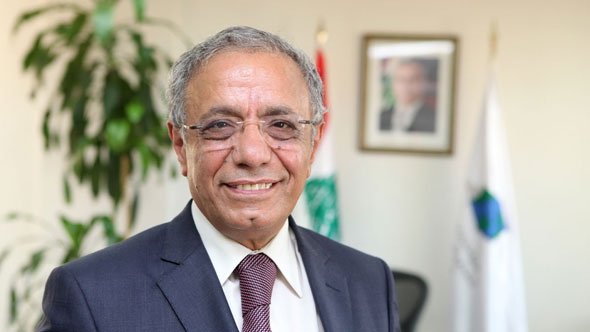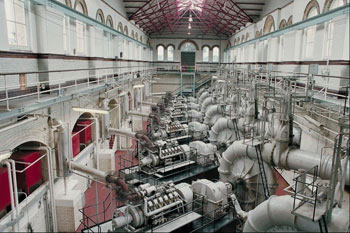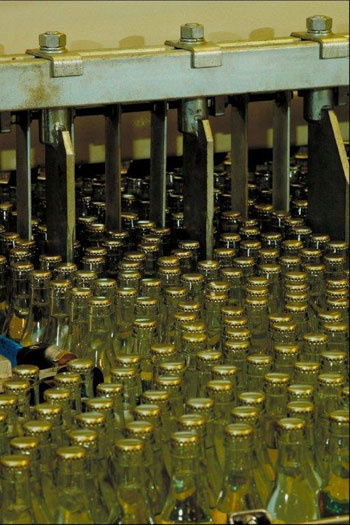Investment in Lebanon | Where to Invest in Lebanon?
Lebanon has a competitive advantage for an investment in 3 main areas: education, climate and well-established banking sector. According to IDAL, the key investment sectors include health care tourism sector, media sector, and ICT sector. The main risk when making an investment in Lebanon is the regional instability, says Mr. Itani of IDAL.
Interview with Nabil Itani, Chairman and General Manager of IDAL (Investment Development Authority of Lebanon)

Lebanon observed the second highest yearly decline in foreign direct investment after Egypt, recording total inflows of almost US$ 4 billion in 2011 vs. a total of US$ 5 billion a year earlier. What are the most promising projects investors should be looking at in Lebanon?
The most promising sectors investors should be looking at are based on the country’s competitive advantage which can be summarized as follow: (1) Education, (2) Climate, and (3) Sound banking sector. The pillars provide a sector with the readiness for development. The potential for a sector to develop are based on external demand for the product as well as the sector competitiveness.
From that perspective, the key sectors/projects investors should be looking at are as follow: Projects in the medical tourism in Lebanon and more specifically projects that capitalize on Lebanon’s health care body which is one of the best in the world and on our climate which is unbeatable in the region. Statistics show that we have one of the highest ratio of beds to population (34 beds per 10,000 population compared to 72,000 in France and 18 per 10,000 in Jordan) and one of the highest ratio of doctors to population (33 doctors per 10,000 compared to 37 in France).  Today we have an under-supply of rehabilitation centers or post-surgery centers that would provide long term care for specific cases. In addition, we lack the wellness centers that could capitalize on our weather a major asset.
Today we have an under-supply of rehabilitation centers or post-surgery centers that would provide long term care for specific cases. In addition, we lack the wellness centers that could capitalize on our weather a major asset.
As such we highlight encourage investors to look at opportunities in these projects:
Investments in media projects are also key whether in the traditional media sector consisting of production and post-production facilities, or in the new emerging digital media sector.
Lebanon could serve as a base for TV and film production and post-production and the government has place to set up a media city in Lebanon that would offer attractive rent (compared to regional offering) but also a very talented local force.
Investments in the ICT sector which shows enormous potential hinged on our human skills. Lebanon could serve as an outsourcing base for IT companies to develop software products and solutions for various activities in addition to investing in e-commerce platforms.
The food and beverage sector is also attractive given our well know brand name.
What is your assessment of the investment law in Lebanon, what is the outlook for 2012-13?
The national investment Law was enacted in 2001 at a time where the country was undergoing massive reconstruction efforts. The Law’s main components were designed to provide incentives to large scale projects that would generate employment and create job opportunities for our massive expatriate base, while at the same time providing additional incentives to companies locating outside the city to reduce socio-economic disparities that were aggravated throughout the war.
I have a positive outlook for this year and the year to come despite the local and regional disturbance because not only we have continuously managed to attract investments but there are plenty of opportunities to tap into. We are not a saturated economy and the undersupply of services across many activities creates hopes for added investments.
10 years down the line, with the technological advances taking place globally, affecting the attractiveness and competitiveness of sectors, the Investment Law and some of its criteria were no longer appealing for SME projects. With regional competition for investments increasing dramatically and economic zones spurring across the region, offering very attractive exemptions (administrative, financial, etc…) for foreign companies, we saw it as crucial to amend our Investment Law to capture a share of these investments.
In a first step, the two decrees related to the investment incentives granted to were put forth for revision. Amendments were suggested to the following:
The criteria upon which projects are granted incentives were revised. A scheme for small and medium scale projects was catered for to ensure that projects with a moderate investment size can benefit from the various exemptions, in addition to a scheme for large scale projects aimed at multinationals or at projects which have a high impact on employment.
The parameters used to assess a project fit for incentives were also revised. Ensuring quality of products and conformity with international standards of competition were considered a priority.
The current zoning system used to determine the level of incentives based on a region’s socio-economic challenges was revised to favor regions with higher unemployment rates.
What are the risks when making an investment in Lebanon?
You have the regional instability that could play a hindrance factor however as you can see from our statistics, our FDI flows were not impacted by any local or regional disturbances that have taken place. The compounded annual growth rate of FDI flows for the last 4 years stood at 16% and we are one of the largest recipient of FDI in the region if you could exclude oil rich economies, which really highlights the resilience of our economy.  Lebanon is also a signatory of multiple investment treaties that protect foreign investors (53 bilateral Agreements for the Promotion and Protection of Investments). The major consequences of political risk is its impact on local and external demand for local goods which can then have an impact on the profitability of a company.
Lebanon is also a signatory of multiple investment treaties that protect foreign investors (53 bilateral Agreements for the Promotion and Protection of Investments). The major consequences of political risk is its impact on local and external demand for local goods which can then have an impact on the profitability of a company.
Do you think the government is doing enough to lure investors into Lebanon?
While IDAL is the main entity responsible to attract investments, various government entities are putting in place the right policies and measures that would lure investors:
IDAL has amended its Investment Law No 360 to provide more attractive financial incentives to companies operating across various sectors and that would increase the pool of companies that can benefit from the lucrative investments.
IDAL’s incentives could go up to 100% exemption on corporate income tax for 10 years which are interesting to foreign companies paying corporate tax rates of around 30% in other countries.
Fostering the creation of clusters: The current government is actively working on creating clusters specifically tech clusters that are important for investors. IDAL is supporting in that measure along various other ministries. There are plans to have a media as well as High tech clusters in the short to medium term.
Other government entities like the Ministry of Telecom are also playing a key role in bringing our IT infrastructure at par which international standards which is a key requirement by investors. Some Law related to the business environment are also being modernized such as the Lebanese Code of Commerce and its related laws important to regulate commercial activity in Lebanon and the modernization of the legal framework for secured lending transactions to increase lending activities of SMEs.
What is the outlook for investment in 2012-2013? What strategy do you have to improve the investment statistics?
I have a positive outlook for this year and the year to come despite the local and regional disturbance because not only we have continuously managed to attract investments but there are plenty of opportunities to tap into. We are not a saturated economy and the under-supply of services across many activities creates hopes for added investments.
Of course IDAL will play a role in improving the outlook for investments specially in productive sectors with efforts to move away from real estate investments and as such insure diversification of FDI across multiple sectors.
How easy is it to do business in Lebanon?
If we look at our ranking through the Doing Business Indicators we lag behind some of our peers in selected indicators to be honest (such as registering a company and dealing with construction permits). However, we are progressing on that front.
Some of the Doing Business Indicators where we rank high include:
Ease of getting credit (The public registry coverage is in line with OECD average (8.3% of adults for Lebanon versus an average of 8.8% in OECD countries).
Paying Taxes: Ministry of Finance has improved processes for tax payments, introduced e-declaration and e-payment services and established a one-stop-shop for tax payments at the customs.
How competitive is Lebanon compared to Saudi, Bahrain, Qatar and the other GCC countries?
We are very competitive in the sectors that rely on human capital and as such that have a high value-add. Since we are not a resource based economy, our government has channeled important investment in education and this has materialized in the following indicators:
Lebanon ranked 12th globally in the overall quality of education, and 6th globally in the quality of math of science education.
Lebanon ranked 3rd in the MENA region in terms of ICT Development skills index which captures ICT capabilities and skills.
As such we are competitive in sectors which make sure of those skills such as ICT and Media. We are also recognized to be of the most solid banking platform in the world.
We are also competitive in the Agro industrial and agriculture sector and we are a major exporter of these products to the GCC. This is attributed to our availability of land and our long traditional brand name.
Which privatization initiatives are you working on and can you describe the key investment opportunities for foreign investors?
We are not working on privatization per se as there is a higher body involved in that which is the Higher Privatization Council.